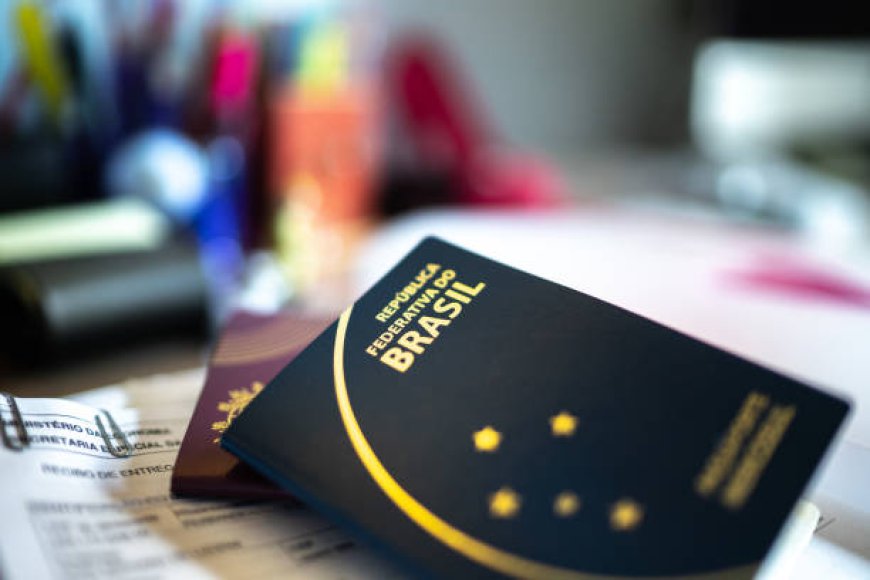Brazil Visa Guide: Everything You Need to Know for Your Trip
Get essential tips and insights in our Brazil visa guide. Learn everything you need to know for a smooth trip to Brazil. Start planning today!

Planning a trip to Brazil is an exciting endeavour, but before you pack your bags, understanding the visa requirements is crucial. Brazil, known for its stunning landscapes, rich culture, and vibrant cities, welcomes millions of tourists each year. However, depending on your nationality and the purpose of your visit, you may need a visa to enter the country. This guide will provide you with essential information about the various types of visas available, helping you navigate the application process smoothly.

Whether you're traveling for leisure, business, or education, having the right visa ensures a hassle-free experience. From gathering the necessary documents to understanding processing times, this guide will equip you with everything you need to know to secure your Brazil visa and enjoy your trip without any setbacks.
Here are some Brazil Visa Guides: Everything You Need to Know for Your Trip
What is a visa for Brazil?
A Brazil visa allows a traveler to enter, stay, and engage in specific activities in Brazil. Requirements vary based on the traveler's nationality, with different policies and regulations for each country.
Rio's Rendezvous: Important Brazil travel visa categories
Below is a summary of the various visa categories that Brazil offers:
1. Visitor Visa (VIVIS): intended for foreign visitors to Brazil for business, tourism, transit, or engagement in cultural, athletic, or educational exchanges. This visa, which has a maximum 3-month validity period, forbids engaging in paid activities in Brazil.
2. Diplomatic Visa: Granted to foreign diplomats and officials while they are on official business, serving as representatives of their home countries or foreign organizations. Both short-term and long-term assignments in Brazil are covered; furthermore, this ensures comprehensive support for various travel needs.
3. Official Visa: For foreign administrative staff members who are temporarily or permanently assigned to official missions on behalf of foreign governments or international organizations. Foreign nationals, provided that their governments have given their official approval, are also covered.
4. Courtesy Visa: Intended for foreign dignitaries and officials, along with their families and domestic staff, who are visiting non-officially. It also includes international athletes and artists who are taking part in charitable cultural events. Additionally, their participation helps promote goodwill and community engagement.
5. Temporary Visa (VITEM): This is a wide category that includes visas for teaching, research, humanitarian aid, medical care, students, paid work, working vacations (under certain bilateral treaties), religious ministers, volunteers, investors, major contributions to the arts, sports, technology, or science, family reunions, artistic or athletic endeavors, and medical training.
Brazil's regulations regarding tourist visas
Brazil has changed its tourist visa regulations in recent years, which affects visitors from a number of nations.
Changes to visa policies: Three previously visa-exempt countries now require a tourist visa, according to the Brazilian government. Starting January 10, 2024, citizens of the US, Canada, and Australia must apply online for a Brazil eVisa to enter the country. Citizens of Japan will remain exempt from visa requirements due to a reciprocal agreement.
General entry requirements: Passports must have one blank page for the entry stamp and be valid on the entry date into Brazil. While there are no vaccination requirements, visitors should check Brazil's Ministry of Foreign Affairs website for the latest health advisories. Any cash over 10,000 Brazilian reals (BR) must be declared upon entry and departure.
Special considerations for minors: Brazilian law requires travel permissions for minors who are Brazilian citizens, including dual nationals, to prevent child abduction. If a minor is traveling without both parents, they must, therefore, have a copy of their birth certificate or annotated Brazilian passport. Additionally, they need authorization letters from each absent parent.
Conclusion
Obtaining a Brazil visa is an important step for a smooth trip to this vibrant country. Understanding the types of visas and the application process ensures your documents are in order. This preparation helps avoid delays upon arrival, allowing you to enjoy Brazil's rich culture and stunning landscapes.
Planning to explore the Amazon, relax on beautiful beaches, or enjoy local cuisine? Sorting your Brazil visa is key for an unforgettable adventure. Check the specific requirements based on your nationality and travel purpose for a smooth entry into this captivating destination.
Also Check Out:

 jamesdavid123
jamesdavid123